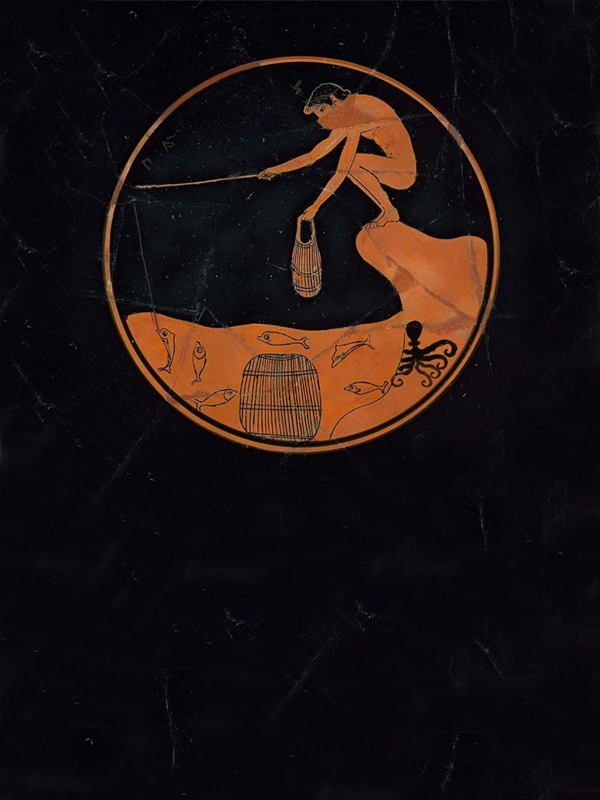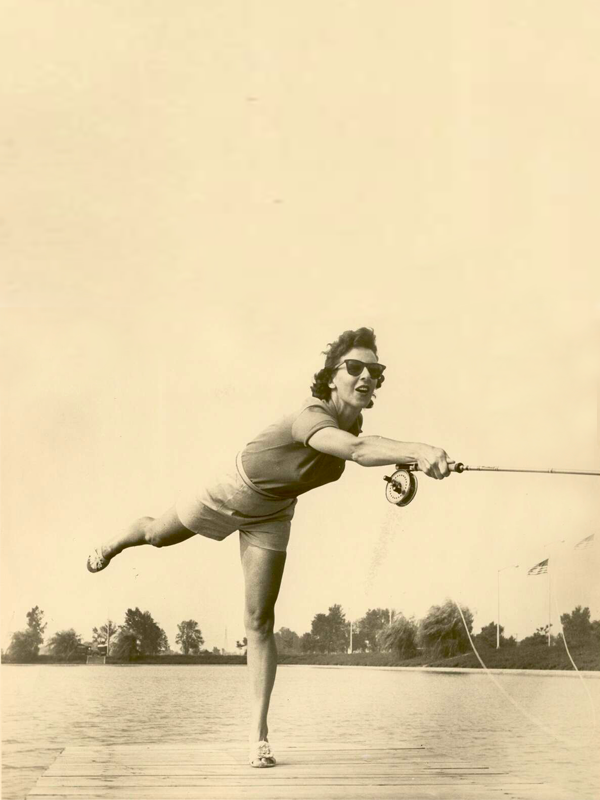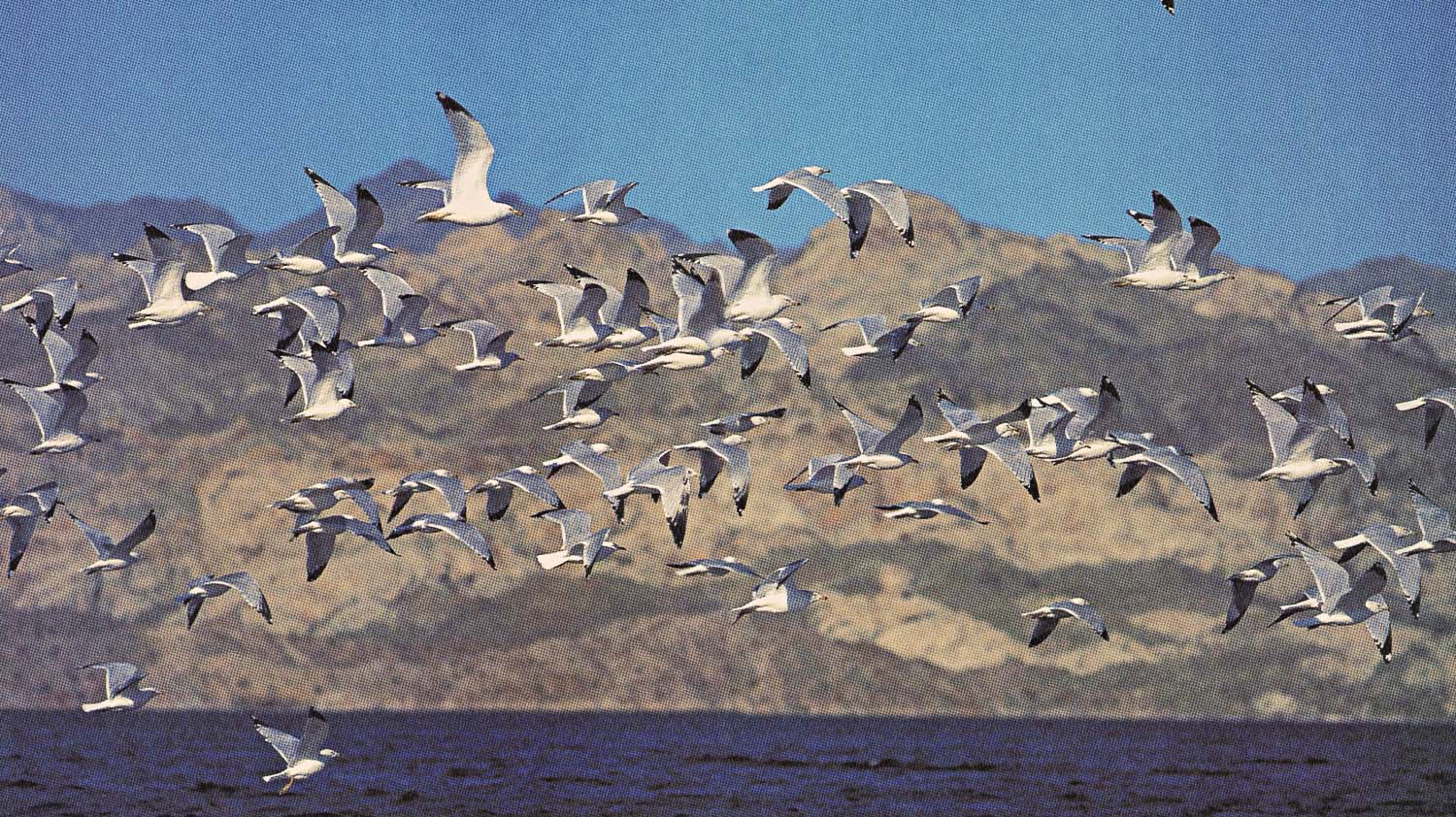
Fishing in ancient Rome
Fishing in ancient Rome

Great lovers of marine fish and fishing, history tells us that the Romans discovered, during the conquest of the Gauls, immense rivers unknown to them, which abounded in salmon and other freshwater species.
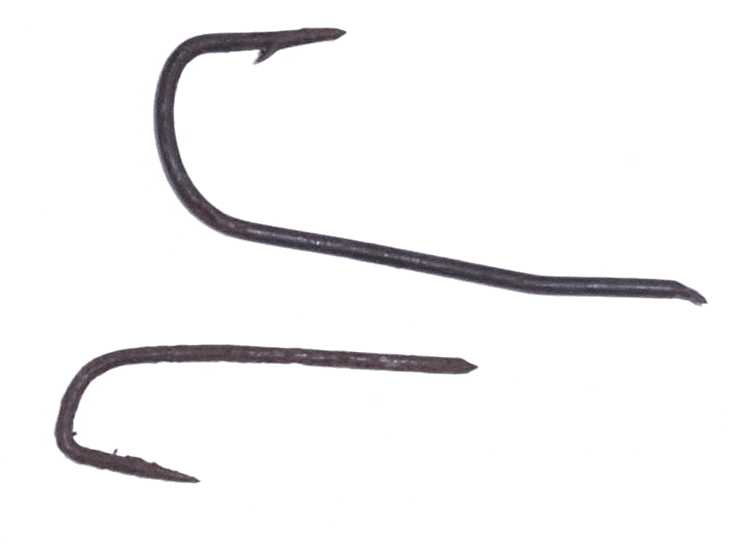
Roman bronze hooks over 2000 years old.
For the Romans, who were great lovers of sea fish, freshwater angling was considered a country amusement. Martial praises “the joy of feeling a fish struggling at the end of the vibrating line.” Virgil, Horace, Juvenal make in their writings, frequent allusions to recreational fishing, Pliny the Elder and Ausone devote entire poems to it. The emperors Augustus and Nero practiced this leisure with passion.
But in the Roman Empire, the great ones were not the only ones to appreciate the joys of fishing. On one of the frescoes of Pompeii is represented an angler, seated at the edge of a river, holding in his hand a long reed to which is fixed a thread. At his feet, a basket made of wickerwork contains his numerous catches. As far as sea fishing was concerned, the Romans used the same techniques as the Greeks: longlines, bottom lines, nets, traps, harpoons and foils. The hooks used for sea fishing, found in the excavations of Pompeii or Herculaneum, were long and strong, made of bronze or tinned iron. Much smaller models, certainly intended for fresh water, are also known.

On this plate are clearly identifiable a sar, a red mullet and a flounder... all fish appreciated by the Romans for their gustatory qualities.
Gaul provided the Roman Empire with most of its fish.
At the time of the splendor of the Empire, Rome received fish, shellfish and crustaceans from all parts of the conquered provinces. Certainly Gaul provided most of these supplies, on the one hand because of its proximity, but also because the fishing industry was more developed there than elsewhere. According to Pliny, it was the Gauls who discovered the process of tinning hooks for sea fishing, so that they would not rust. The Ligurians fished all along the coast of Provence and Languedoc. Inland, the number and clarity of streams and rivers, the power and width of rivers, the penetration of estuaries, lakes and lagoons offered for fishing a diversity found in no other region, as reported by Caesar in his accounts of the Gallic War.
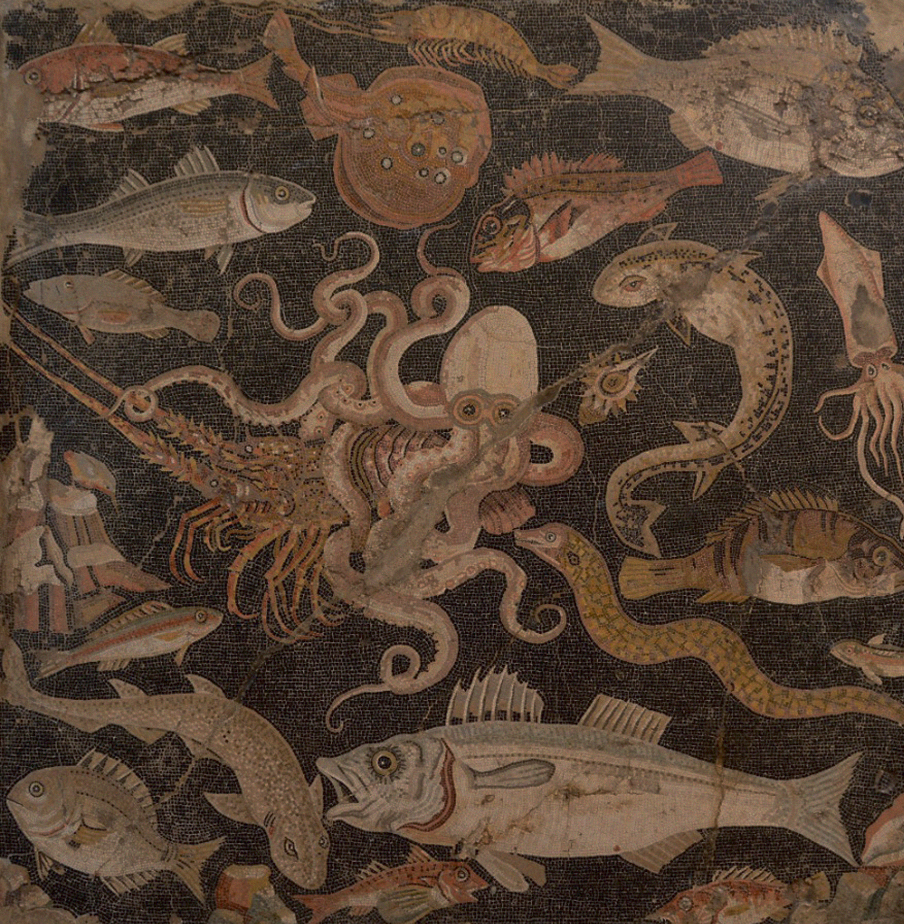
This splendid mosaic of Pompeii represents most of the fish common to the Roman coasts of the Mediterranean: bass, sar, dogfish, girelle, moray, red mullet, mullet, sea bream, scorpion fish, as well as crustaceans (lobster, shrimp) and mollusks, octopus and squid.
Ausone, prefect of the Gauls, sings in a famous poem, the fish of the Moselle.
Fishing in ancient Rome, Plutarch, who was born in Greece but became a Roman citizen in the first century A.D., gives fishermen advice that has lost none of its value: “First of all, the hook must be strong enough to resist the violent jolts of the biting fish, but it must also be thin, because if it is too big, it casts a shadow on the water that arouses the suspicion of the fish. The hair that carries the hook should be as white as possible, for the whiter it is the less visible it is in the water.”
But, it is Ausone (Ausonius), born in 309/310 in Bordeaux, whose numerous writings have remained, who has most and best celebrated fishing and the fish of the great rivers of “Roman” Gaul. A politician, man of letters and Gallo-Roman pedagogue close to the emperor Gratian, he was appointed prefect of Gaul in 378. While stationed in Trier, an important city of the Roman Empire, located today in Germany near the border with Luxembourg, he sang in an ode to the Moselle River, which flows through the city, about fishing and the fish in this important tributary of the Rhine. He was one of the first poets to speak of salmon and salmon trout (in fact sea trout, which also swim up the Moselle). “I will not pass over you in silence, O salmon, you whose flesh has the brightness of purple; from the middle of the marine abyss, the wandering strokes of your broad tail are repeated on the surface of the sleeping wave of the Moselle.” Fishing in ancient Rome.
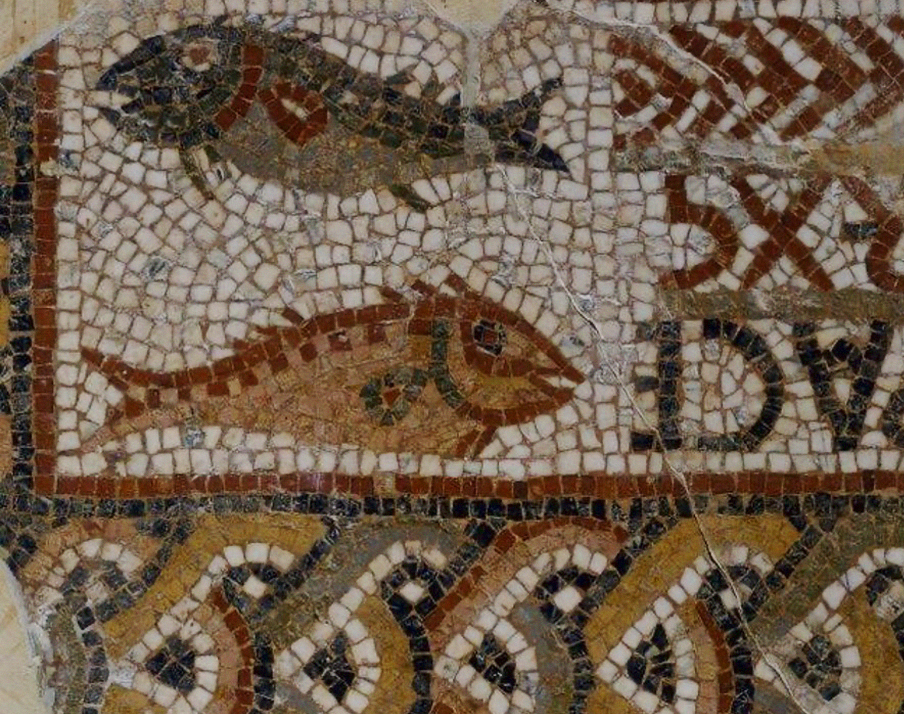
Mosaic on a Carthaginian tomb representing rock fish.


